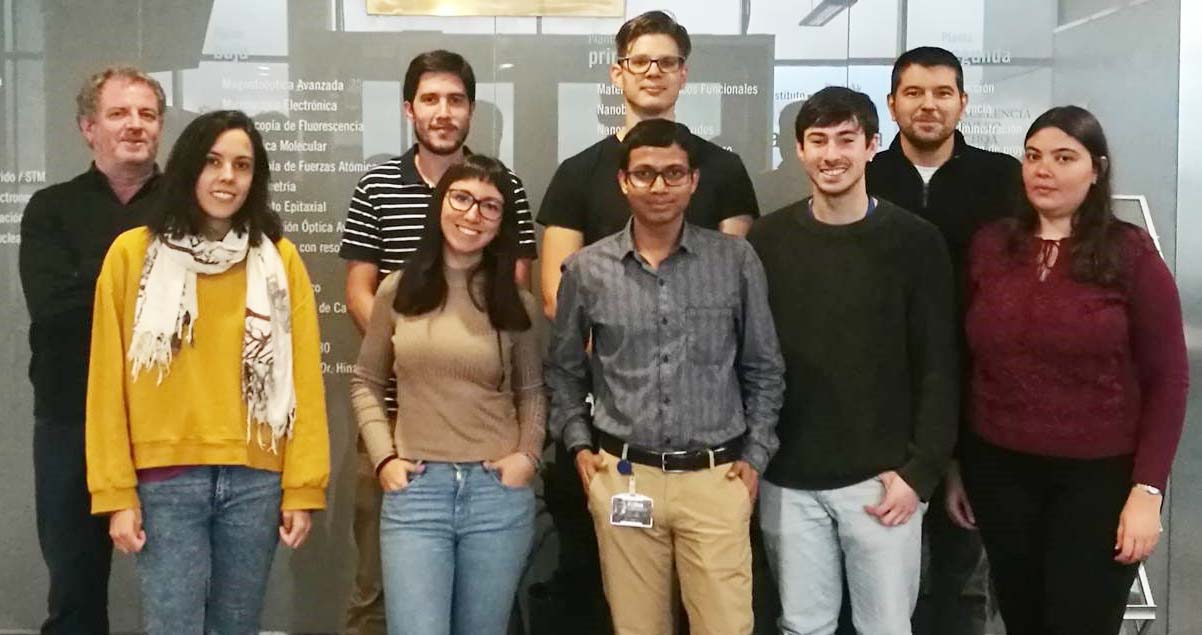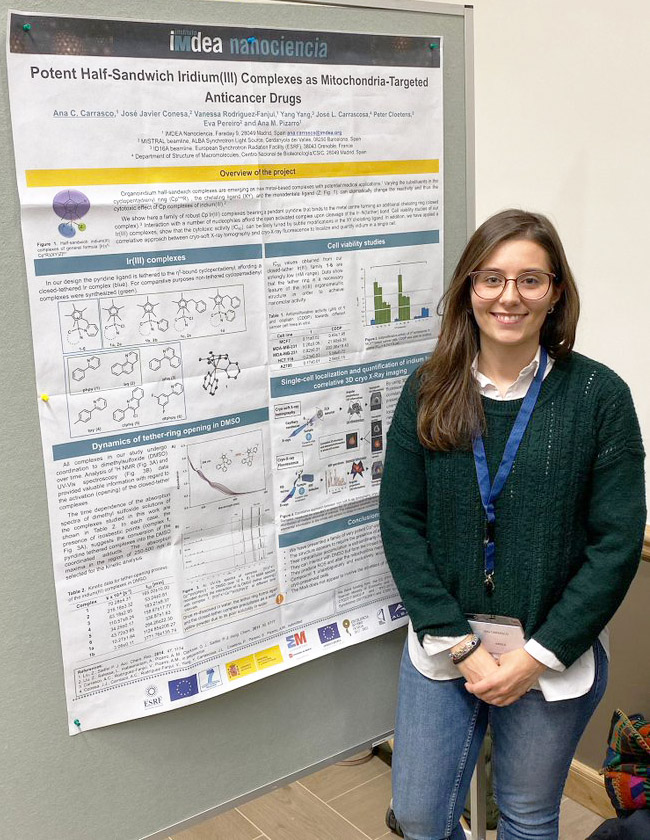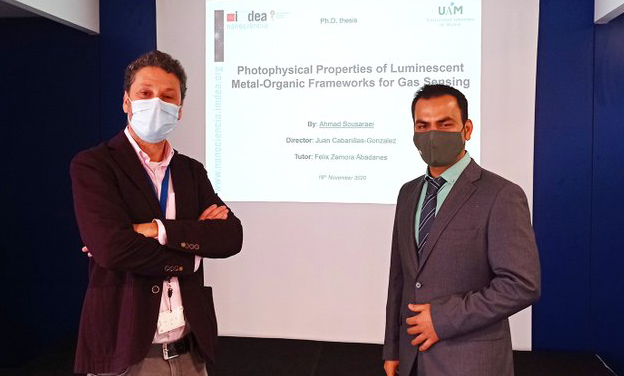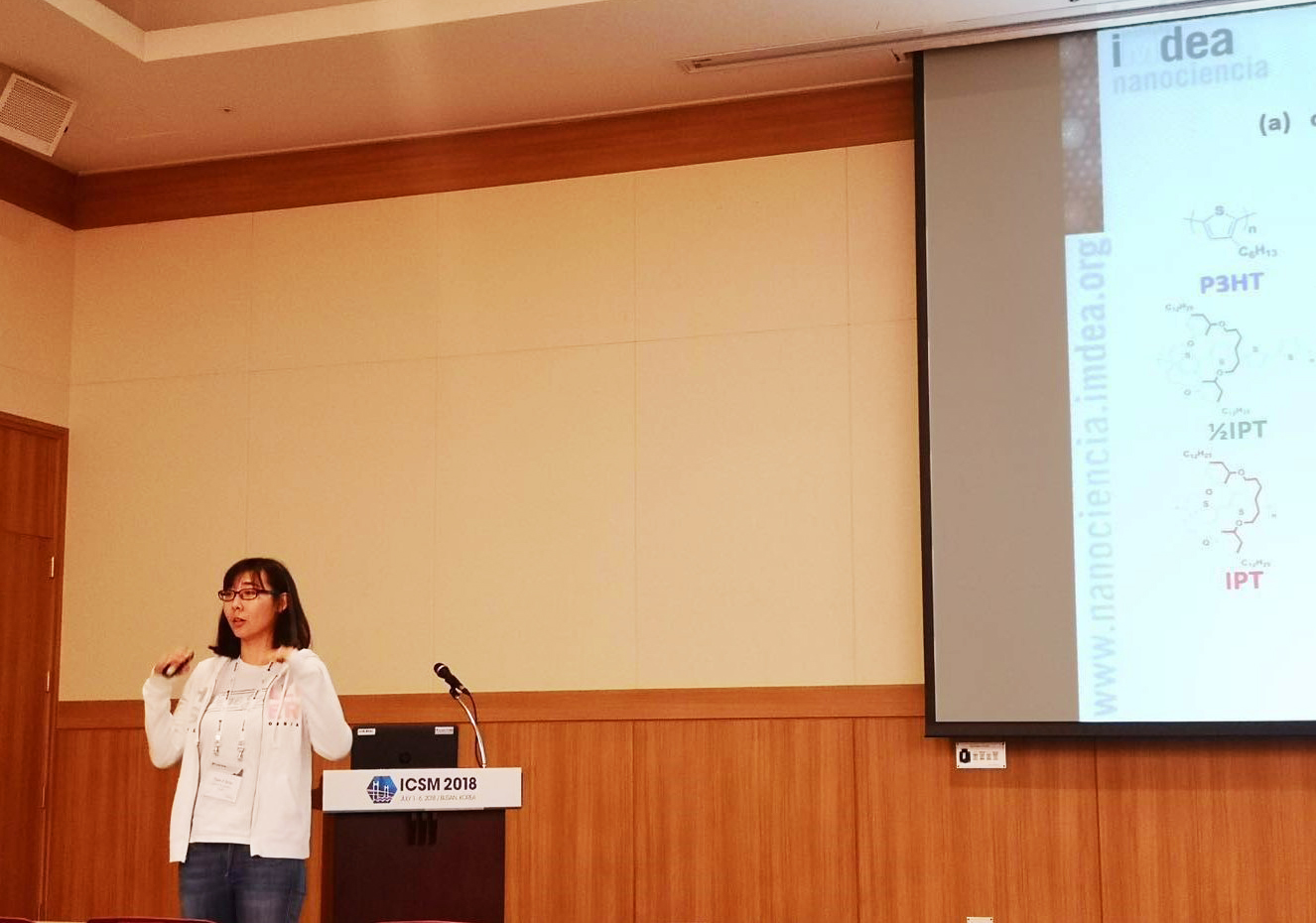
Ana Sánchez-Grande defended her doctoral thesis "Design and characterization of functional nanomaterials on surfaces" on Oct. 21st, 2020. Her PhD was supervised by Prof. David Écija and realised on the Nanoarchitectonics on Surfaces Group at IMDEA Nanociencia.
- How did you hear about the institute IMDEA Nanociencia? Tell us more about the beginning of the story…
I heard about IMDEA during my master thesis at Complutense University of Madrid. Then, I found an offer in “Madri+d” for a PhD position at IMDEA Nanociencia, focused on the study of novel materials by means of scanning probe microscopy, which was in my main field of interest. I applied for the position and that is how I met my supervisor David Écija and started my PhD at IMDEA.
- How was the working environment at IMDEA Nanociencia? What was your most positive experience at this place?
The working environment at IMDEA is very nice, I would say that is the most positive experience during my PhD. I have met brilliant people who have trained me and I have spent really good times with my colleagues.
- What is your next stage? Tell us more about your career expectations now.
I will move soon to Prague for a postdoc position at the Institute of Physics, Czech Academy of Sciences.


This year 2020 (by 23.10) a total of 8 PhD students at IMDEA Nanociencia have defended their theses. We started the year with two, entitled "Novel functionalization methods of 1D and 2D materials and their applications" by Mariano Vera and "The applications of CVD grown graphene in surface-enhanced Raman scattering and Förster resonance energy transfer" by Yansheng Liu and directed by Prof. Emilio M. Pérez and Prof. Feng Luo, respectively.
Despite the pandemic situation, IMDEA Nanociencia researchers managed to thrive. After summer 2020, 6 PhD students defended successfully, either with masks on and social distance or either via telematic means. We assisted to the defenses of Julia Villalva, Adrián del Valle, Estefanía Fernández, Sofía Mena, Kateryna Lemishko and Ana Sánchez-Grande.
Julia Villalva's thesis, directed by Prof. Emilio M. Pérez, studied "Chemistry of nanomaterials inside out; mechanically interlocked, endohedral and covalent derivatives of SWNTs and 2D materials". Another thesis directed by Prof. Pérez, "Molecular machines and materials based on mechanically interlocked carbon nanotubes", was defended by Sofía Mena this September. The thesis of Kateryna Lemishko, directed by Prof. Borja Ibarra and in collaboration with Prof. Pérez's group, studied "Mechano-chemistry and dynamics of biological and synthetic systems". Adrián del Valle defended his multidisciplinary thesis "Simultaneous fluorescence and atomic force microscopy to study mechanically-induced bacterial death in real time", directed by Prof. Cristina Flors. "Novel switchable hybrid materials for applications as sensors at the molecular level" is the title of Estefanía Fernández's thesis, first PhD graduate from Prof. José Sánchez-Costa's group. And the last one, "Design and characterization of functional nanomaterials on surfaces" by Ana Sánchez-Grande and directed by Prof. David Écija.
From IMDEA Nanociencia, we congratulate them and wish the best for their future. We thank also the professors forming the PhD committees for their dedication and time.








